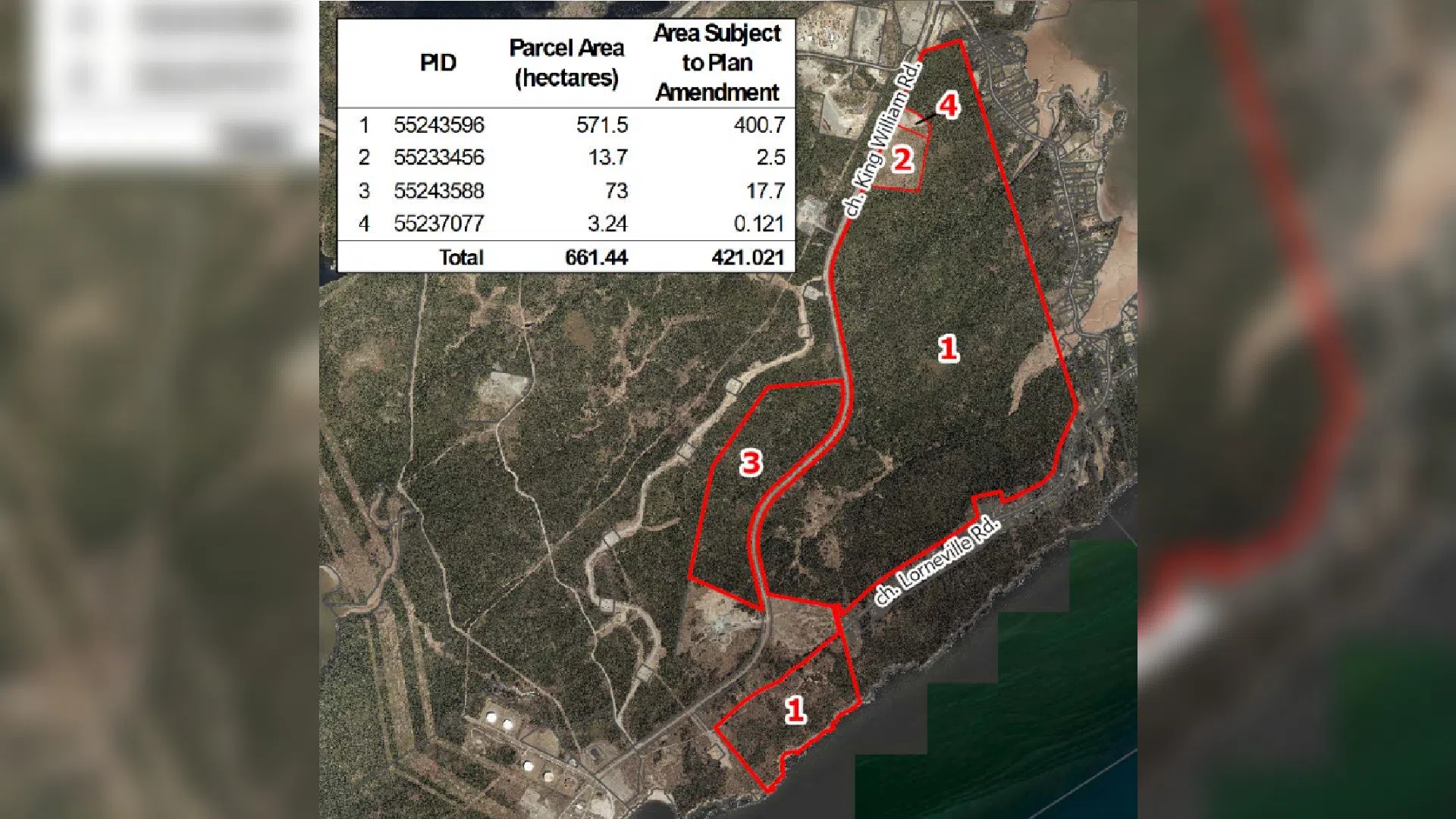After months of public hearings and debates, a controversial industrial park expansion in a Saint John community is moving ahead.
Councillors voted Monday night to approve the zoning and municipal plan amendments needed to expand the Spruce Lake Industrial Park.
The third and final vote by council came despite overwhelming opposition from residents in the Lorneville community and beyond.
However, the approval is only one part of the process, with the project still awaiting the results of an environmental impact assessment.
Saint John wants to add more than 1,500 acres of “pad-ready” land to the industrial park, describing it as a once-in-a-generation opportunity.
“The smallest parcel of land is larger than the available land that we have in our existing parks today, if it were all pushed together, and it’s not,” Ian MacKinnon, the general manager of Saint John Industrial Parks, told reporters in April.
Dozens express opposition during hearings
But residents from near and far have voiced their concerns about the expansion, with dozens expressing their opposition over three meetings in recent weeks.
One of the sticking points has been a lack of information about what corporations may be looking to come to the community.
Council previously heard there is formalized interest for a data centre project and a green manufacturing project with a combined capital investment of more than $2 billion.
Only “non-emitting industries” — those without smokestacks — would be allowed. Several land uses would be prohibited, asphalt plants, petroleum refineries, metal shredding and scrap or salvage yards.
The city would also require professional risk assessments, which it said will ensure potential risks are either prevented or adequately mitigated.
“How do we even put in conditions, how do we put in concerns to protect our safety if we don’t actually know what business is coming?” Adam Wilkins, co-chair of the group Save Lorneville, told our newsroom.
“We’re not against the economy, we’re not against development and jobs, but at what cost to the environment, what cost to the risk for people’s health and safety?”
Residents are also concerned about the loss of trees, the impact on wetlands and how any development could affect their well water.
Just three people spoke in favour of the expansion as the months-long public hearing concluded on June 16, including representatives from Envision Saint John, the regional growth agency, and Port Saint John.
Council also voted Monday to direct the money collected through land subdivision toward community projects within Lorneville.
Community group responds
Many Lorneville residents are unhappy with council’s decision, according to a community group opposing the project.
Save Lorneville said it is “extremely disappointed” that councillors “unanimously rammed through” the approval.
“From the beginning, Lorneville residents have consistently stated they are not opposed to development; however, it must be sensible & reasonable,” the group said in a news release.
“It must not come at the expense of the health & safety of residents; without the significant loss of wetlands and mature/old growth forest; and not without the complete erosion of due diligence, process, and trust in government.”
Some residents have said they feel as though councillors had their minds made up about the proposal from the time they requested the land in question from the province.
Spokesperson Adam Wilkins said the final public hearing on June 16 appeared to be staged, with questions and answers rehearsed to focus solely on issues council wanted to address.
“How else can you account for a unanimous decision with so many unanswered questions?” Wilkins said in the release.
Save Lorneville said plans to keep pushing back against the proposal, which could include legal action.
What happens now?
While council has signed off on the plan, the development still hinges on an environmental impact assessment being undertaken by the Department of Environment.
Spokesperson Vicky Lutes said the review has been taking place while the rezoning process has been ongoing at the municipal level.
“The EIA determination review process is being followed for this project and no decision will be made until all the relevant technical issues identified by the community, the technical review committee and First Nations have been addressed,” Lutes said in an email to our newsroom.
Reviews take on average six months, said Lutes, but complex projects “may take longer to complete.”
According to the department’s website, the project was first registered on June 11, 2024.








